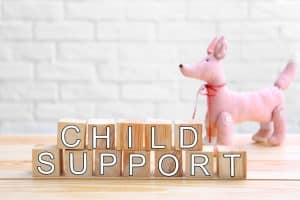Handling New Income and Child Support with your Seasoned NJ, Family Law Attorney
Helping Clients in Toms River, Wall, Asbury Park, Point Pleasant, and Ocean County towns
It is logical that after a couple dissolves their marriage, they will establish new relationships and perhaps even remarry. When there are children from the first marriage, child support can be quite a conundrum. In many cases, the amount of child support being paid by the first spouse will not change regardless of the new relationships that have been recently formed; however, under certain circumstances, that may not be the case. Let’s take a look further into the details that could change the amount of child support you or your new spouse have to pay.
At Bronzino Law Firm, LLC we have successfully handled numerous child support cases, and it’s our pleasure to share that experience with you and identify the best approach for your particular situation. Our family law and child support team serves clients in Brick, Sea Girt, Asbury Park, Wall, Spring Lake, and Brielle. We have the knowledge and skill to help you with all facets of financial and child support related matters throughout Monmouth and Ocean County, NJ.
To schedule a free and confidential consultation with one of our family law attorneys today regarding the specifics of your case, please send us a message or call (732) 812-3102.
What Happens to Child Support if you Remarry in New Jersey
If you remarry, the new spouse has no obligation to support your children from a prior relationship financially. Until recently, if you remarried and had more children with your second spouse, you were considered fully responsible for the care and welfare of all of the children involved; however, now the court will consider the totality of your obligations when determining an amount of child support. The reason for this is that the court considers your new and previous children worthy of the same amount of support from you. Simply because you chose to remarry, you needn’t be penalized for having children you support from your previous relationship.
The original child support agreement was probably established using the “Child Support Guidelines,” created to provide the court with a fair calculation of child support keeping in mind families from various economic strata. It is not a formula per se, but it provides guidelines for determining child support in a commensurate manner.
When it comes to child support for families whose net income is greater than approximately $200,000, the child support to be paid is calculated using the Child Support Guidelines. Still, an additional child support stipend is added based on many factors, including school tuition, sports, associated lessons, and/or other extracurricular activities.
New Jersey Child Support Agreements Are not Written in Stone.
The amount of child support paid can be augmented or abated when conditions merit a change. Either parent can seek a change to the order, be they the payor or the custodial parent. Circumstances such as bankruptcy, a debilitating injury (either the child or the parent), a workplace accident, being fired or furloughed, eviction, or severe chronic illness could lead to a lower amount of child support being paid. At the same time, an increase in salary or living with another adult, the payor’s obligation could be increased.

There are numerous factors besides income that can change the amount of child support being paid. When the payor can establish that their financial conditions have changed, as explained above, the other spouse must fill out a CIS (Case Information Statement) detailing all earnings and expenditures. The judge’s decisión is also based on: the child’s needs, the incomes of both parents, support ordered for other children from a previous marriage, debts, assets, and any other points the judge feels are pertinent to the case.
Emancipation: As Children Leave The Nest in Brick, NJ
As of 2017, New Jersey family law provides that a child who reaches the age of 19 years old is automatically emancipated, and support is no longer paid unless the custodial parent has submitted a request to the court to extend support because the child is attending college or finishing high school or is disabled. The extension can continue until the child is 23 years of age. If the child marries, dies, or joins the military, support ends.
Where To Begin with your Process? Contact one of our Ocean and Monmouth County Attorneys Today
Tackling the ins and outs of divorce with all of the challenges it brings is not made easier by a complex child support system. The minutiae that are contained therewith is dizzying.
The good news is a great lawyer can give you the support and guidance you need to prepare a plan of action that can get you on your way to a fair agreement that provides your children with what they need, which is, after all, what everyone involved wants to have happened.
If you reside in Ocean and Monmouth Counties in towns like Barnegat, Beachwood, Seaside Heights, Manchester, Lakewood, or Lacey Township, our offices are conveniently located to provide you with the guidance you need and deserve.
Call the Bronzino Law Firm, we will work expertly to keep the forefront of your decision-making process needs. Feel free to call us at (732) 812 3103.








